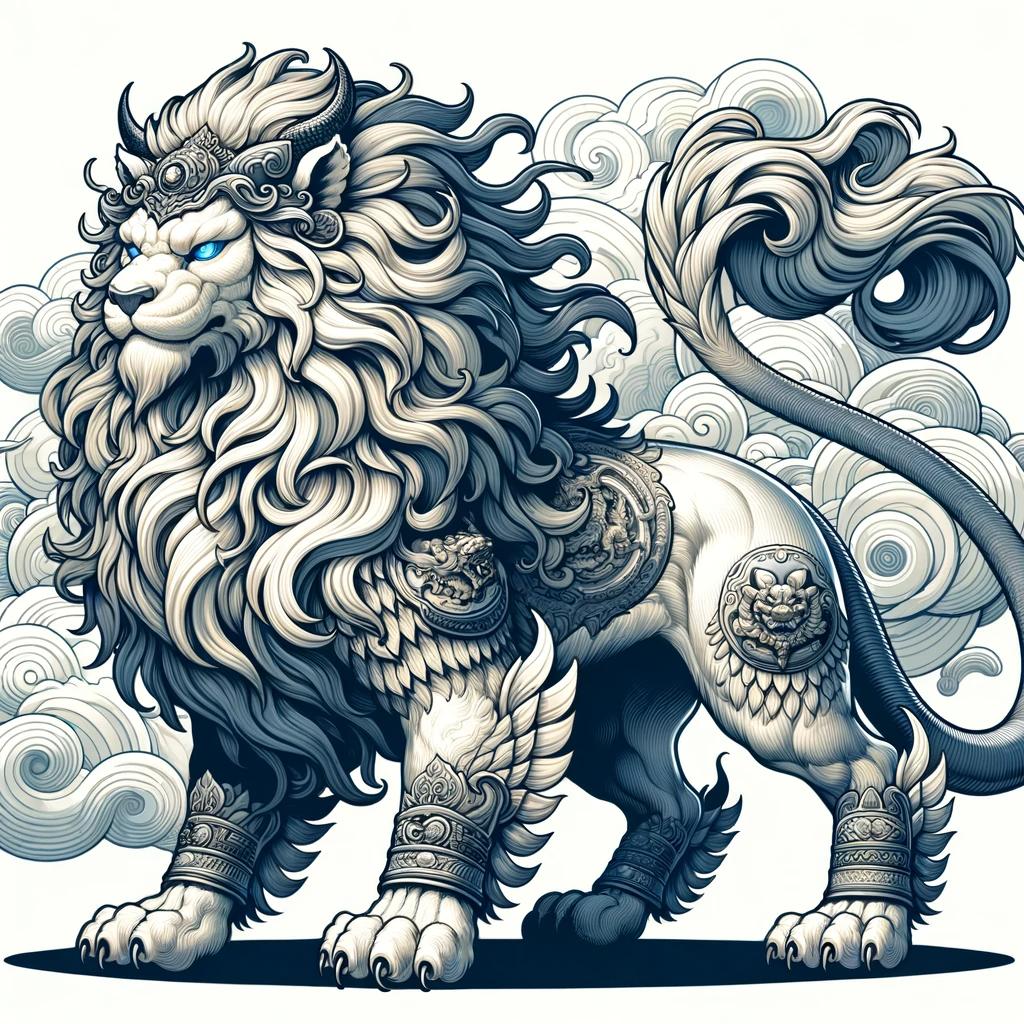Dumangan God: The Divine Guardian of Bountiful Harvests

Dumangan god, a Filipino deity associated with bountiful harvests and heavenly realms, holds significant cultural importance. This article explores Dumangan’s mythical origins, from divine birth to familial ties, and his crucial role in ensuring high-quality rice production.
It delves into diverse beliefs, with some embracing Dumangan as a sacred being who influences successful harvests, while skeptics question his existence. Dumangan’s reverence in ancient and contemporary Filipino agriculture, particularly within the Tagalog culture, showcases his enduring legacy.
Additionally, the article highlights the promotion of sustainable farming practices, crop diversity, and education initiatives influenced by Dumangan’s heritage.
Mythical Origins of Dumangan: Exploring the Philippine Mythology
Dumangan, the revered deity in Filipino folklore, carries a rich mythical history that captivates the imagination. This section delves into the enchanting narrative of Dumangan’s divine birth and family lineage. Through ancient tales passed down generations, we uncover the story of Dumangan’s emergence as a celestial being.
The Story of Dumangan’s Divine Birth and Family
Intricately woven within Philippine mythology, the legend reveals the celestial origins of Dumangan. Born of divine lineage, Dumangan ascended as the god of the sky and master of abundant harvests. The mystical connection between Dumangan, the goddess Idianale, and their offspring intertwines in a fascinating tale that resonates with the Filipino people’s agricultural roots.
Dumangan’s Attributes and Responsibilities in the Sky and Agriculture
Embodying the powers bestowed upon him, Dumangan governs over the heavens and the bountiful yields of crops. With unfathomable wisdom, Dumangan safeguards not only the vast skies but also bestows favor upon the rice fields.
Farmers attribute their successful harvests to Dumangan’s divine intervention, reaping the rewards of his agricultural guardianship.
Cultural Beliefs and Practices Surrounding Dumangan Worship
The belief in Dumangan’s benevolence is deeply ingrained in Filipino culture. Generations have revered Dumangan as a sacred figure deserving respect and devotion. Rituals and practices associated with Dumangan worship echo the faith of the people, seeking his blessings for favorable outcomes in agriculture.
Such traditions reflect the intricate tapestry of beliefs woven into the fabric of Filipino agricultural heritage.
Debates and Opinions on the Existence of Dumangan
When it comes to Dumangan, the Filipino deity associated with bountiful harvests, there are varying debates and opinions on his existence. Let’s explore the perspectives of both believers and skeptics, as well as examine some insights into Dumangan’s impact on rice harvests.
Believers’ Perspectives: Faith in Dumangan as a Sacred Being
The faithful believers view Dumangan as a sacred being worthy of reverence and devotion. They firmly believe in his existence and attribute their successful rice harvests to his divine intervention. For them, Dumangan is not just a myth or superstition, but a powerful deity responsible for ensuring fruitful fields and quality grain.
These believers hold deep respect for Dumangan’s role as the god of the sky and agriculture. They see him as a protector and guardian of their crops, someone to be called upon and revered for a bountiful harvest.
Their devotion to Dumangan reflects the rich variety of beliefs and traditions within Filipino culture, particularly in the context of agriculture and the cultivation of rice.
Skeptics’ View: Evaluating Dumangan as a Myth or Superstition
On the other hand, there are skeptics who question Dumangan’s existence, perceiving him as nothing more than a myth or superstition.
They attribute agricultural success to natural factors such as climate and soil quality, rather than supernatural beings like Dumangan.
These skeptics may view the worship of Dumangan as an outdated tradition rooted in superstition.
Some even make lighthearted remarks about invoking Dumangan for their own humorous desires, like wishing for french fries instead of vegetables. They cast doubt on the idea that Dumangan plays a tangible role in the agricultural realm, opting for explanations grounded in practicality.
Examining Different Experiences: Dumangan’s Impact on Rice Harvests
Both believers and skeptics agree that rice harvests are crucial, but their interpretations of Dumangan’s impact differ. Believers credit Dumangan for their successful harvests, believing that his divine presence directly influences the outcomes.
In contrast, skeptics attribute favorable results to natural and scientific factors rather than the intervention of a supernatural being.
These diverse perspectives reflect the rich tapestry of beliefs and traditions surrounding Dumangan in Filipino society.
While some find solace and inspiration in the worship of Dumangan, others lean toward a more practical understanding of agriculture. Regardless of one’s stance, the discussions around Dumangan’s existence reveal the interconnectedness of spirituality, cultural heritage, and the pursuit of a fruitful harvest.
The Cultural Significance of Dumangan in Filipino Society
The deity Dumangan holds a profound cultural significance within ancient and contemporary Filipino agriculture, particularly in the Tagalog culture of the Luzon region. Dumangan’s reverence transcends generations, embodying the essence of prosperity and bounty in the agricultural landscape.
Dumangan’s Reverence in Ancient and Contemporary Filipino Agriculture
For centuries, Dumangan has been venerated as the guardian of bountiful harvests in the Philippines. Farmers across the nation have embraced rituals and traditions to pay homage to this deity, seeking his blessings for abundant crops and successful cultivation.
Dumangan’s influence on ancient farming practices has carried over to modern agricultural methods, showcasing the enduring beliefs held by Filipino farmers.
Dumangan’s Role in Ensuring Rice Quality and Successful Planting
Dumangan’s significance extends to the realm of rice production, where he is believed to play a vital role in ensuring the quality of the crops. Farmers invoke Dumangan’s name and seek his favor to guarantee a successful planting season, attributing their fruitful yields to his divine intervention.
The bond between Dumangan and rice cultivation is deeply ingrained in the Filipino agricultural heritage.
Dumangan’s Influence on Tagalog Culture and Beyond
The impact of Dumangan’s presence goes beyond the field of agriculture and permeates various aspects of Tagalog culture. Folklore, music, and dance often celebrate Dumangan’s benevolence and his association with fertility and prosperity.
Dumangan’s influence on the Tagalog people is evident in their deep-rooted traditions and steadfast belief in the deity’s power to bestow blessings upon their community.
The cultural significance of Dumangan in Filipino society resonates through generations, shaping agricultural practices, and serving as a symbol of hope and abundance.
This profound veneration showcases the enduring connection between spirituality, agriculture, and cultural heritage in the Philippines.
Sustainable Agriculture and Dumangan’s Legacy
Sustainable agriculture practices are essential in maintaining a balanced ecosystem and ensuring long-term food security. Within the context of Dumangan’s legacy, the Philippines continues to promote and implement sustainable farming practices to enhance agricultural productivity and preserve biodiversity.
Promoting Sustainable Farming Practices in the Philippines
In recognition of the importance of sustainable agriculture, various government and non-governmental organizations in the Philippines are actively promoting eco-friendly farming methods. These initiatives aim to minimize the use of harmful chemicals, conserve water resources, and protect the natural habitat.
Key actions include:
- Encouraging organic farming techniques that eliminate or minimize the use of synthetic fertilizers and pesticides.
- Promoting integrated pest management strategies that incorporate natural predators and biological control methods.
- Implementing agroforestry practices to enhance soil fertility, prevent erosion, and foster biodiversity.
Enhancing Crop Diversity and Genetic Improvement Techniques
Efforts are underway to enhance crop diversity and genetic improvement techniques to increase resilience to pests, diseases, and climate change.
Through research and cross-breeding programs, farmers are being equipped with improved crop varieties that offer higher yields, better nutritional content, and enhanced adaptability.
Initiatives include:
- Conserving and utilizing traditional crop varieties that have adapted to local conditions over generations.
- Facilitating the exchange of germplasm to enhance crop diversity and promote the conservation of traditional and heirloom varieties.
- Deploying advanced biotechnology, such as marker-assisted selection and genetic engineering, to hasten the development of improved crops.
Training and Education Initiatives for Rice Cultivation
Recognizing the crucial role of rice as a staple crop, education and training initiatives are being implemented to equip farmers with the knowledge and skills needed for successful rice cultivation.
These programs focus on effective irrigation practices, nutrient management, and sustainable soil conservation techniques.
Key educational efforts include:
- Providing farmers with training on modern farming techniques, including precision agriculture and efficient irrigation systems.
- Establishing agricultural schools and research centers to support knowledge transfer and innovation in the field of rice cultivation.
- Encouraging farmer-to-farmer knowledge exchange through community-based learning and demonstration farms.
By prioritizing sustainable farming practices, enhancing crop diversity, and providing education and training opportunities, the Philippines aims to build on Dumangan’s legacy and ensure a prosperous agricultural future.
These efforts not only contribute to food security but also safeguard the environment for future generations.
Future Outlook and Appreciation for Dumangan
Dumangan’s Impact on Contemporary Agricultural Policies
The influence of Dumangan extends beyond traditional beliefs and practices, shaping the development of contemporary agricultural policies in the Philippines. Recognizing the historical significance of Dumangan and the importance of sustainable farming, policymakers have integrated his teachings into strategies aimed at ensuring food security and promoting environmentally-friendly practices.
This concerted effort demonstrates the acknowledgment of Dumangan’s impact on agricultural policies and the desire to preserve his legacy for future generations.
Dumangan’s Influence in Social, Political, and Economic Aspects
Dumangan’s presence goes beyond the realm of agriculture and permeates into various aspects of Filipino society. He exerts a profound influence on social, political, and economic dynamics by serving as a symbol of unity, cultural identity, and traditional values.
Dumangan’s stories and traditions connect people from different backgrounds, fostering a shared sense of pride and heritage. Furthermore, his association with prosperity and abundance enhances the cultural and economic significance of agriculture, influencing trade, markets, and economic activities.
Encouraging the Preservation of Dumangan’s Cultural Heritage
Preserving Dumangan’s cultural heritage is paramount to ensuring the continuation of his legacy and the maintenance of Filipino traditions. Efforts are underway to educate future generations about Dumangan’s significance and the cultural practices associated with honoring him.
Through initiatives such as community workshops, cultural festivals, and educational programs, the aim is to instill a sense of appreciation and pride in Dumangan, fostering an intergenerational bond that safeguards his rich cultural heritage.
Dumangan’s enduring impact on agricultural policies, social dynamics, and cultural heritage creates a promising future for the preservation and appreciation of his significance in Filipino society. By recognizing the multifaceted influence of Dumangan and embracing his legacy, the Philippines acknowledges the integral role he plays in shaping a sustainable and culturally rich future.
.




















